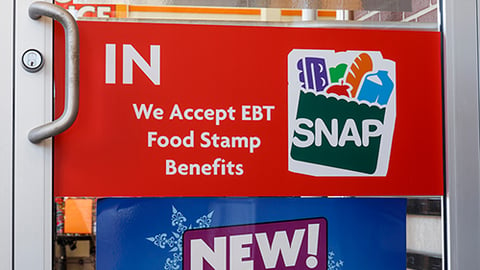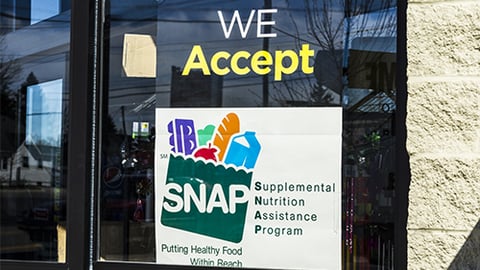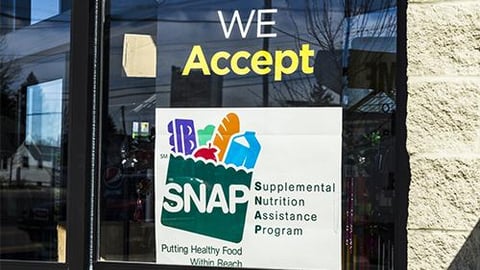NGA Works to Expand SNAP Online
The National Grocers Association (NGA), the trade association representing the independent supermarket industry, is teaming with legislators and the U.S. Department of Agriculture’s Food and Nutrition Service (USDA FNS) to expand Supplemental Nutrition Assistance Program (SNAP) Online Purchasing to more independent grocers in underserved areas.
Last week, the Arlington, Virginia-based trade organization held a virtual meeting with FNS Administrator Pam Miller and about 25 independent grocers and e-commerce representatives on the obstacles confronting small retailers throughout the SNAP Online Purchasing application and testing process.
“A challenge for many small towns and rural areas is that they do not have the population density to support a profitable full-service brick-and-mortar grocery store, and in turn those communities become food deserts,” said Jimmy Wright, NGA member; owner of Opelika, Alabama-based Wright’s Market; and a participant in the Online SNAP pilot project, who took part in the meeting. “Our mission in our business is nourishing families and strengthening communities, and SNAP online purchasing can help us bring that mission to fruition, by [making] it easier to serve folks most in need whether or not they can physically come to the store.”
“Freshop is proud to offer full integration of SNAP on its platform in select states across the U.S., giving millions of Americans the ability to feel safe while providing the necessary nutrition for their families,” said Brian Moyer, CEO of Rochester, New York-based e-commerce provider Freshop, which helped bring SNAP online purchasing to Wright’s Market and other independent grocers.
Among NGA’s recommended steps to help level the playing field for independents:
- Look at ways to increase choice in the third-party payment providers space, and lower some of the onboarding costs for retailers.
- Work quickly and efficiently to approve and launch retailers, while streamlining any possible aspects of the process.
- Find out whether FNS requires more funding and resources from Congress to most swiftly and effectively administer SNAP online purchasing.
“Since the beginning of the COVID-19 pandemic, grocers have been working diligently to serve their customers and feed their communities in the most efficient and effective ways possible,” noted NGA Director of Government Relations Molly Pfaffenroth. “Independent grocers play an important role in feeding America’s rural communities and helping to eradicate food deserts. As consumer behavior and expectation shifts to online offerings, it is incredibly important that independent grocers have the opportunity to offer SNAP online purchasing so they can continue to best serve their customers according to their needs and help fight food insecurity during this critical time.”
Before the pandemic, the ability of SNAP recipients to use their benefits to order grocers on retailers’ websites was only offered by four retailers, two of them independents, in eight states. Starting in March, FNS swiftly expanded its SNAP Online Purchasing Pilot to 47 states, although, as NGA points out, store options remain “very limited” in this regard.
The organization backs passage of S. 4202 and H.R. 7535, the Expanding SNAP Options Act, legislation introduced by Sens. Dick Durbin, D-Illinois, and Tammy Duckworth, D-Illinois, and Rep. Robin Kelly, D-Illinois, that would make it more technically and financially possible for independent grocers to participate in SNAP online purchasing. In support of its position, NGA cited USDA Economic Research Service data that independent grocers play a key role in helping to ensure food access for consumers, especially in low-income and rural areas, and a USDA ERS study finding that independent grocers outnumber chain grocery stores in remote rural areas and operate at higher rates in counties with a large proportion of Black and Hispanic residents.
While many independents have applied to FNS to take part in the program, none except for the pilot grocers have yet rolled SNAP online purchasing, which NGA attributes to onerous requirements and several barriers unique to small retailers. Among these barriers are technical challenges, a testing process that must be performed with each store location, financial constraints to launch and continuously operate the program, and a drawn-out application and approval process.






